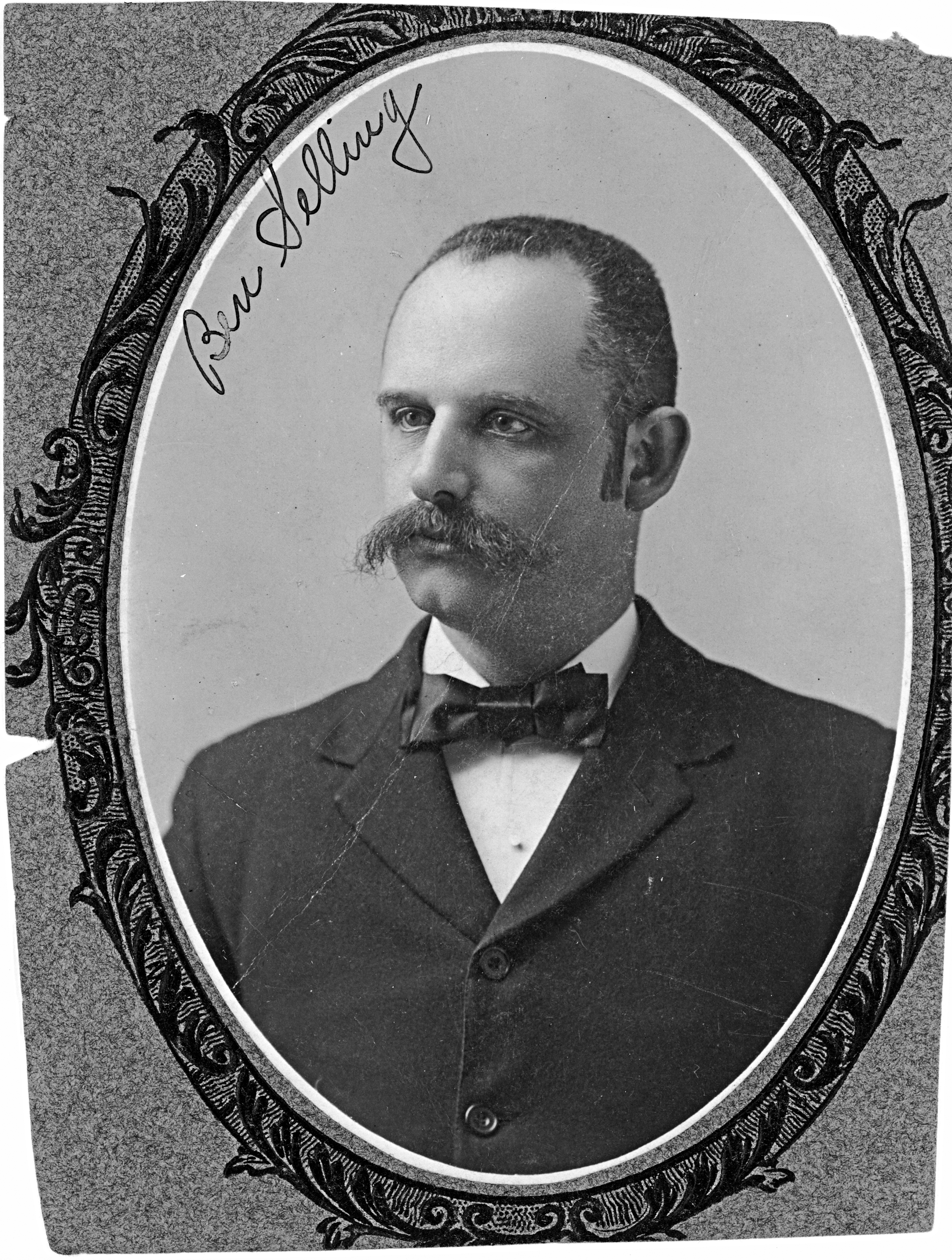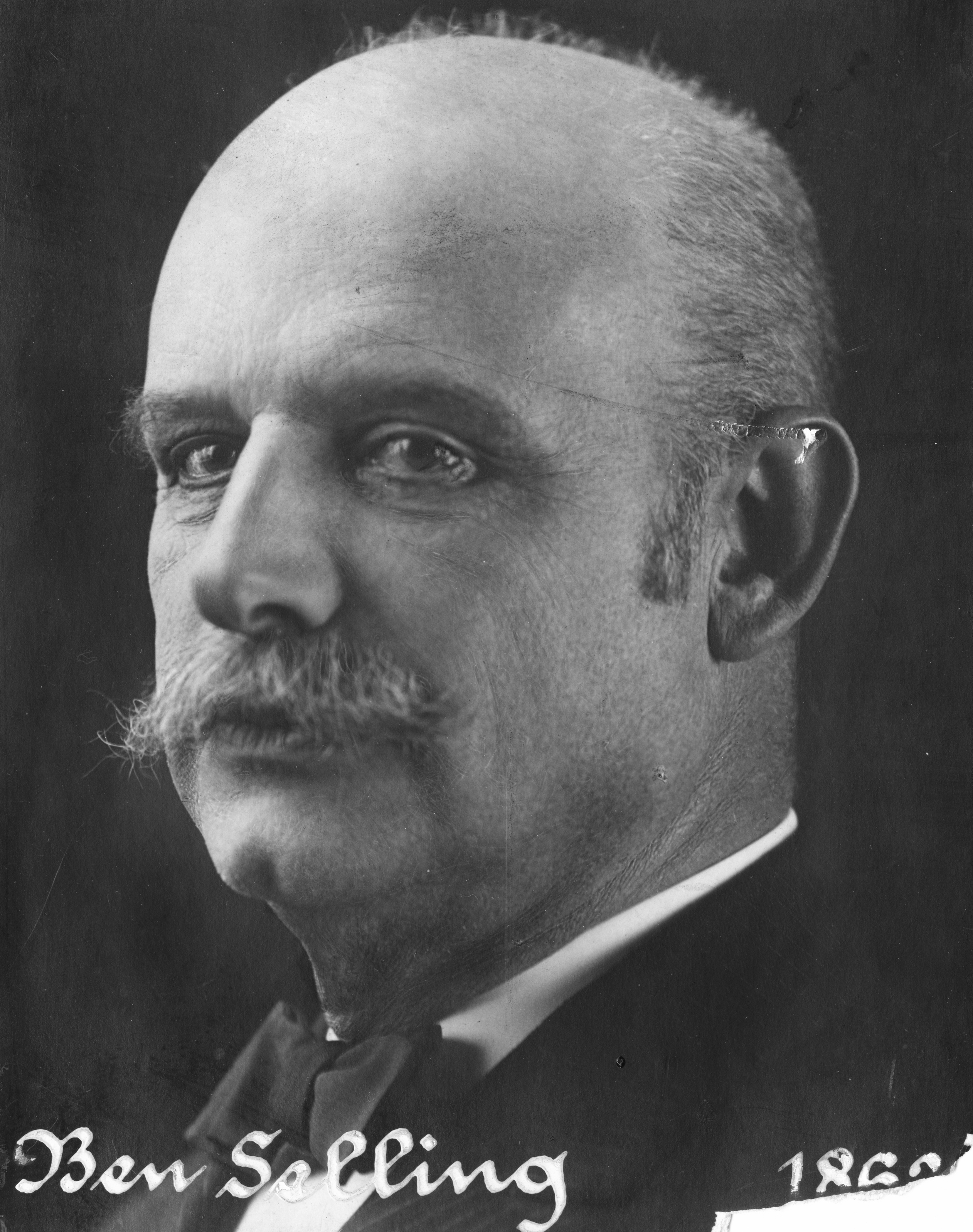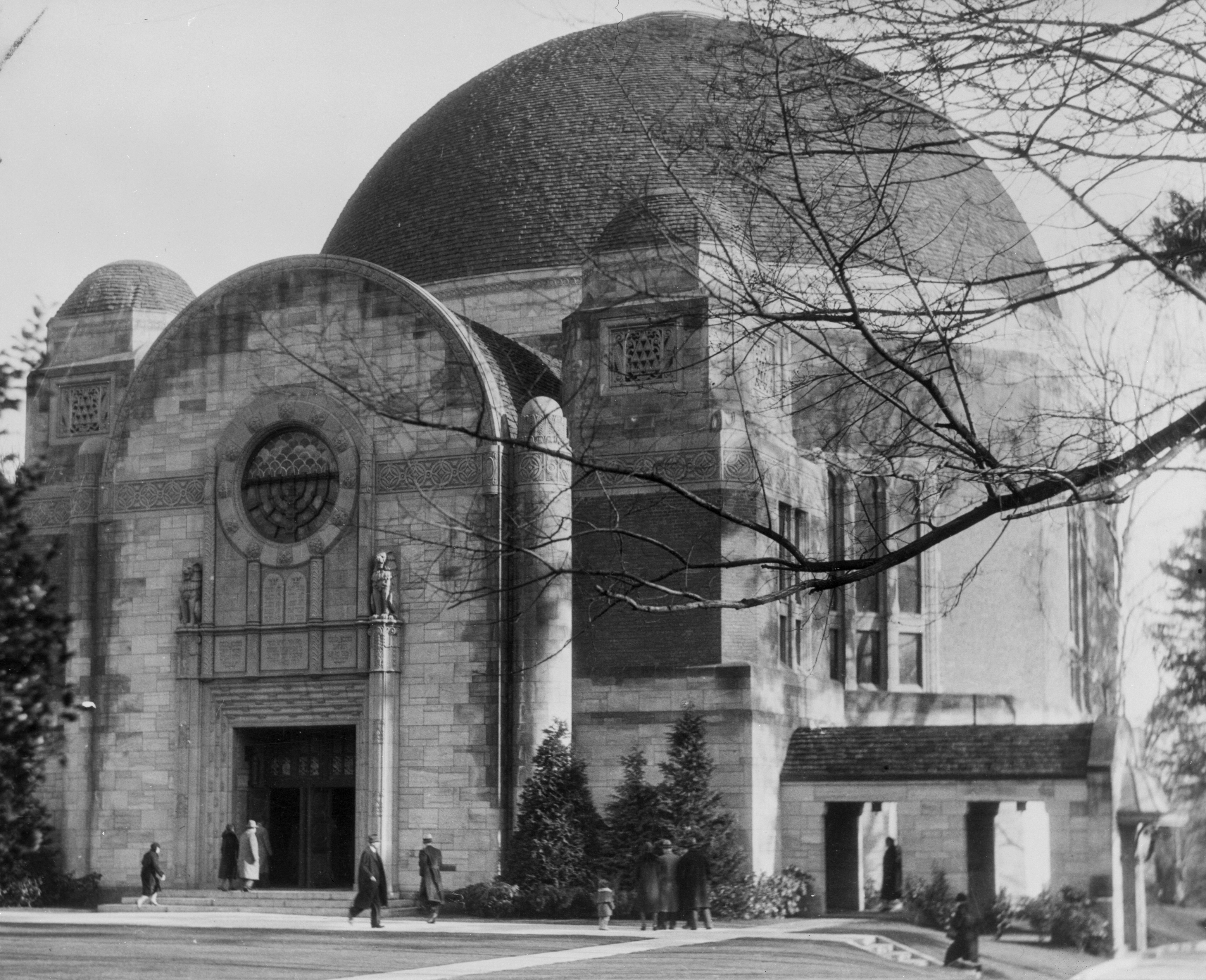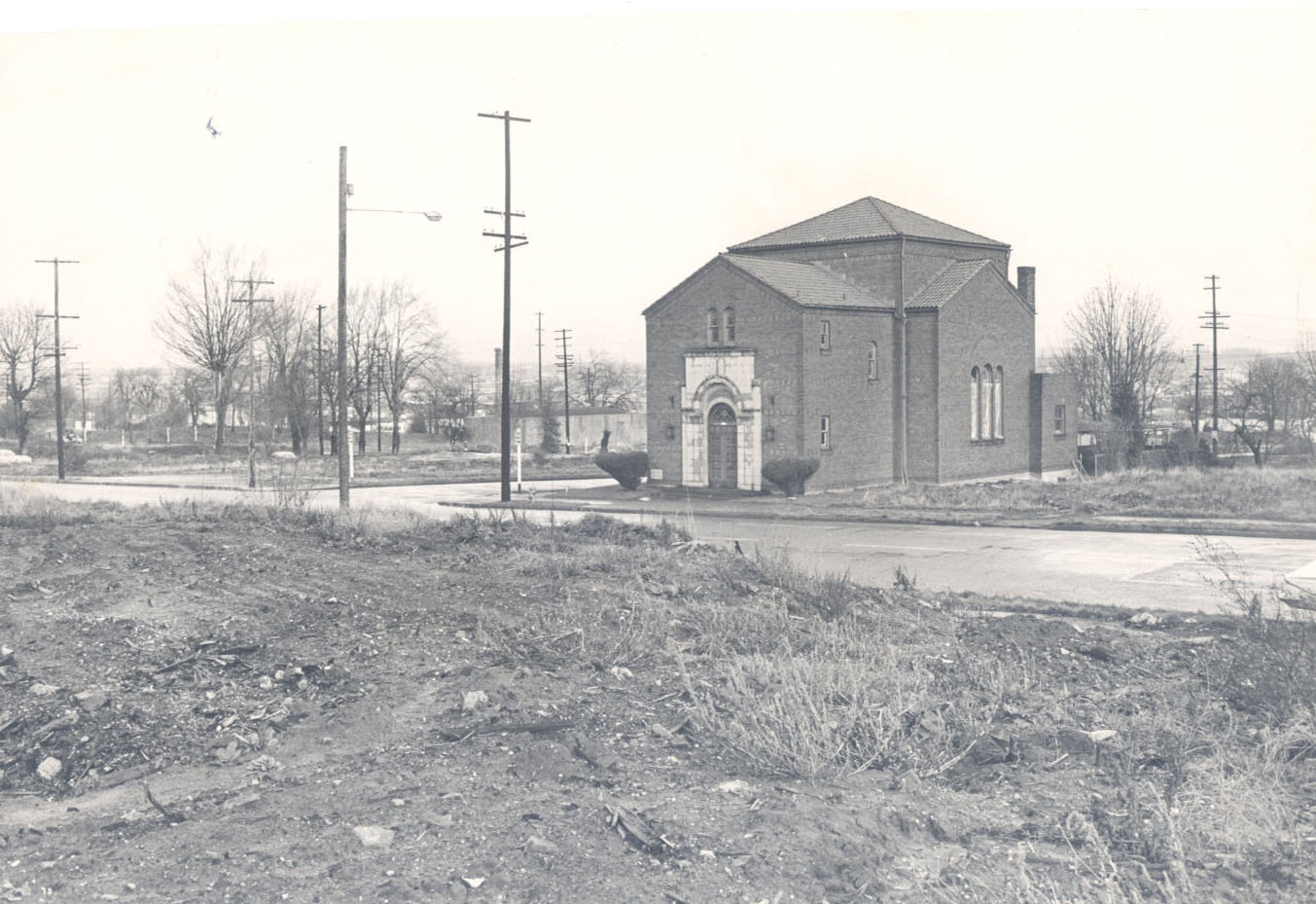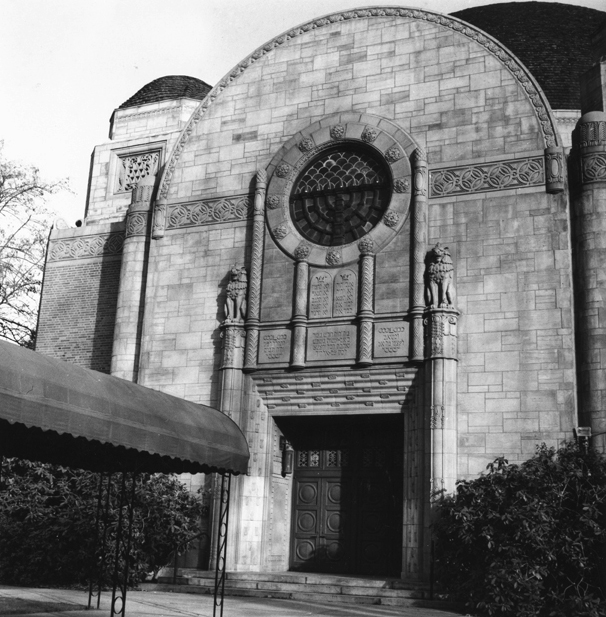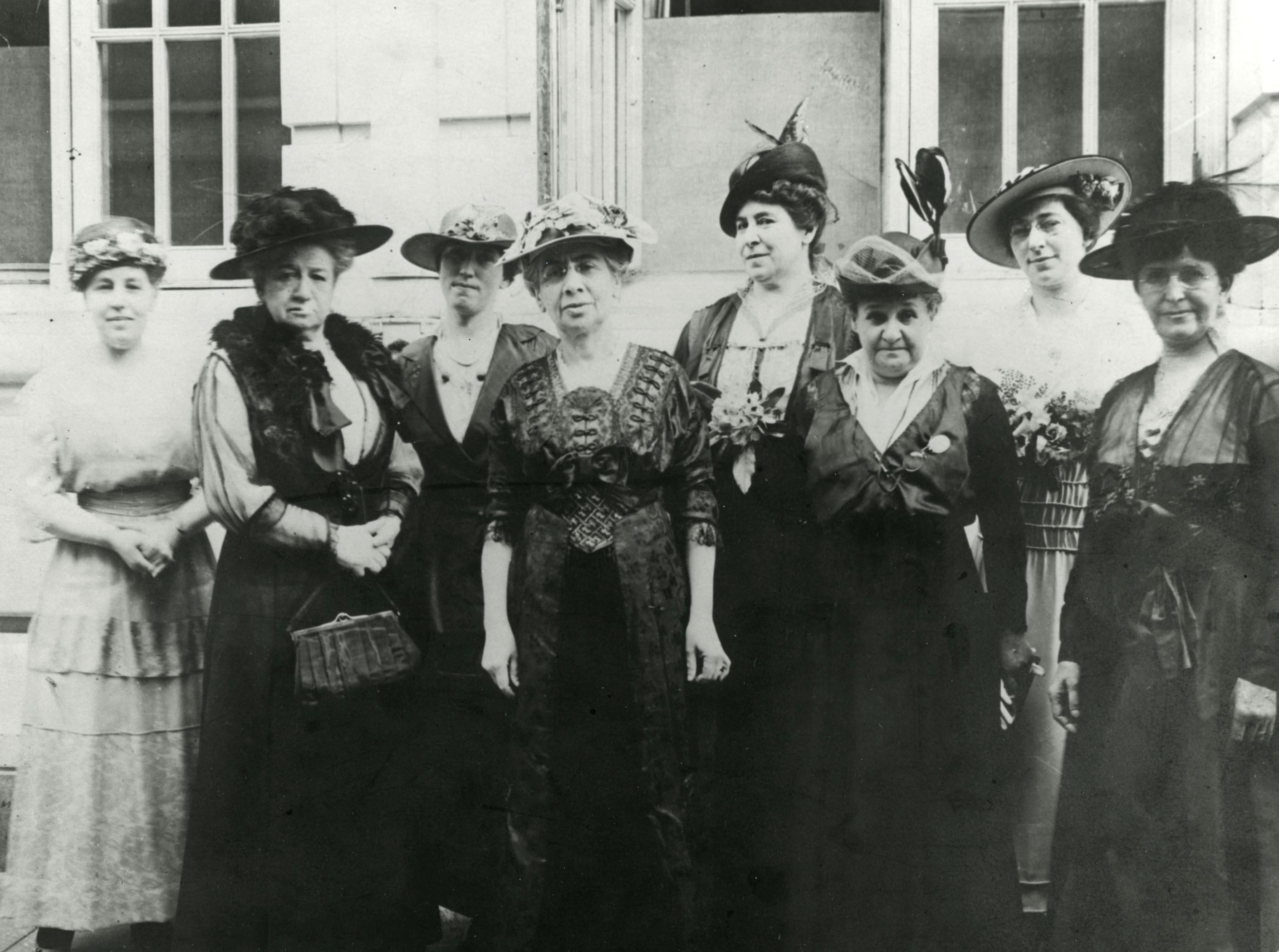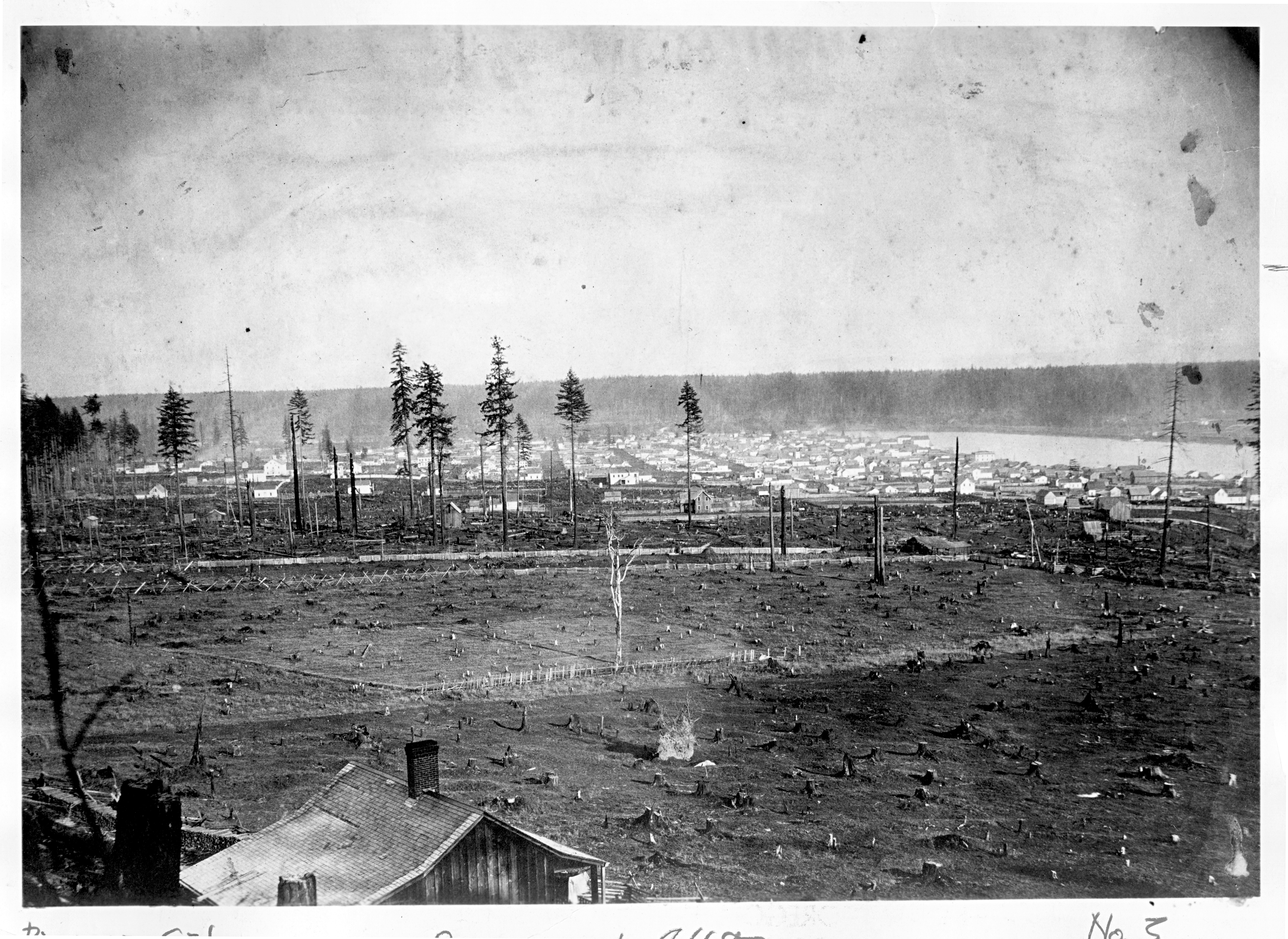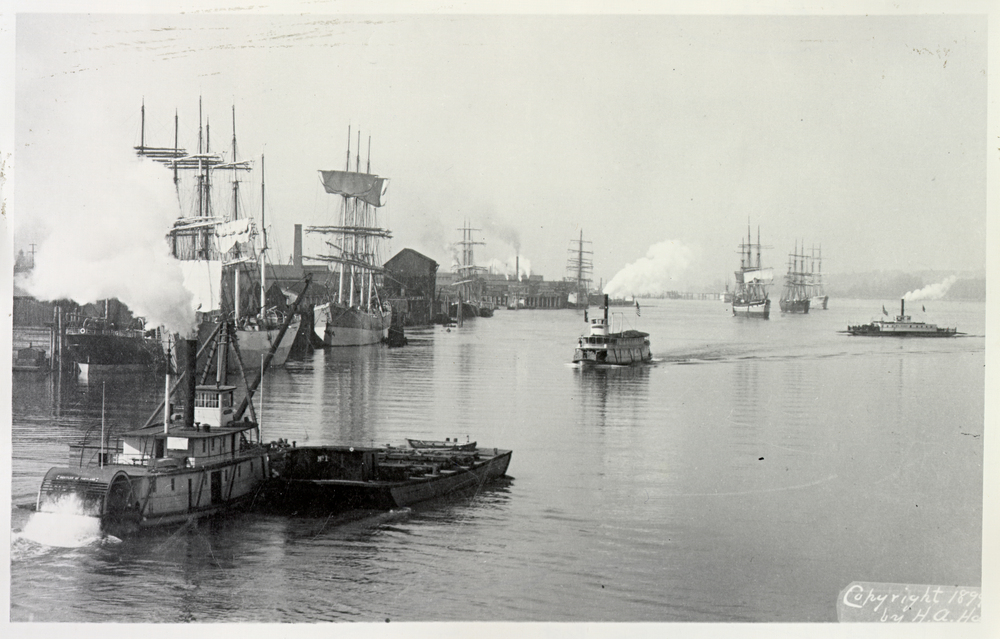Ben Selling—an early Portland merchant, elected official, and philanthropist—truly reflects the inscription on the Skidmore Fountain in the city where he lived and worked for nearly all of his life: “Good citizens are the riches of a city.” In both his work and his personal endeavors, Selling put Portland and the well-being of his fellow citizens at the forefront of his concerns and activities. Historian E. Kimbark MacColl considered Selling to be "the outstanding Jewish leader in Portland" during the early years of the twentieth century. Recognizing his stature as a leading businessman and his life-long contributions to the city, Selling was chosen in 1928 by the Portland Realty Board to receive its first First Citizen Award.
Benjamin Selling was born April 29, 1852, in San Francisco, to Caroline and Philip Selling, the first Jewish couple to be married in that city. The family moved to Portland when Benjamin was ten. Because his parents needed his help in their general store, he did not finish his studies at the Portland Academy. In 1881, he started Akin, Selling & Company, a wholesale boot and shoe store. He eventually opened Ben Selling, Clothier, a large store at the intersection of Morrison Street and Fourth Avenue.
Selling was a very successful businessman and was at the center of many city-wide efforts and organizations. Along with men from other leading Portland families, he served on the Port of Portland Commission and the Commission of Public Docks. A very loyal Republican, Selling was elected President of the Oregon Senate in 1911 and Speaker of the Oregon House of Representatives in 1915. He lost his 1912 bid for the United States Senate to Harry Lane by just a few hundred votes.
His good works extended beyond the ordinary civic responsibilities of a wealthy and prominent Portland merchant and elected official. In 1886, he served as a special deputy to help defend Chinese residents of Portland from attempts by organized groups to exclude them from the city, and he was not shy to speak out when he heard about local instances of antisemitism.
Although Selling lived quite modestly, historian Steven Lowenstein called Selling "the preeminent Jewish philanthropist of his day." Writing in 1979, E. Kimbark MacColl made a related point, stating “Ben Selling probably gave away more money in proportion to his income than any Oregon citizen since the state was founded."
Beneficiaries of his generosity were found throughout the world. He both solicited and contributed funds for victims of pogroms in Russia, floods in China, and famine in Japan. He raised $100,000 for Armenian relief activities, and bought $400,000 in World War I Liberty Bonds. Selling established kitchens during the economic hard times of 1893 and 1907, where unemployed workers could get a meal for just a nickel. These kitchens would go on to serve more than 450,000 meals in the years before and after the turn of the century.
Selling was very active in the small but growing Portland Jewish community. As president of the Hebrew Benevolent Association, Selling helped resettle Jewish immigrants in Portland. He also worked to ease tensions between the newer, eastern European immigrants and the older, more established German Jews who had been in Portland for several decades.
Selling spearheaded fundraising campaigns for Portland’s Jewish charitable organizations, including the Jewish Relief Society, B’nai B’rith, and Neighborhood House. Even by today’s standards, the funds raised were significant. According to Steven Lowenstein in The Jews of Oregon, the Jewish Relief Society "…raised millions of dollars to assist destitute Jews of Portland and elsewhere."
A prominent member of Temple Beth Israel, the Reform Jewish synagogue, Selling was also a supporter of Neveh Zedek Talmud Torah, a Conservative synagogue, and the Sephardic Ahavath Achim. His funeral in 1931 drew an enormous crowd. The historic Oregon National Building (1910) on SW Sixth and Alder in downtown Portland has been renamed the Selling Building in his honor, and a scholarship in his name is granted to college students from Oregon who have reached high academic achievement.
-
![Benjamin Selling (unknown date).]()
Selling, Ben, n.d., bb003554.
Benjamin Selling (unknown date). Oreg. Hist. Soc. Research Lib., bb003554
-
![]()
Ben Selling.
Oreg. Hist. Soc. Research Lib., bb007163
-
![Rebuilt Temple Beth Israel, Portland.]()
Temple Beth Israel, Portland, bb007121.
Rebuilt Temple Beth Israel, Portland. Oreg. Hist. Soc. Research Lib., bb007121
Related Entries
-
![Congregation Ahavath Achim]()
Congregation Ahavath Achim
Founded in Portland in 1916, Ahavath Achim was the first Sephardic Jewi…
-
![Congregation Beth Israel]()
Congregation Beth Israel
Congregation Beth Israel (CBI) is the oldest and most prominent Jewish …
-
![Jews in Oregon]()
Jews in Oregon
Jewish Pioneers: Becoming Oregonians In 1869, Bernard Goldsmith, an i…
-
![Portland]()
Portland
Portland, with a 2020 population of 652,503 within its city limits and …
-
![Port of Portland]()
Port of Portland
The Oregon Legislature created the current Port of Portland in 1970 by …
Map This on the Oregon History WayFinder
The Oregon History Wayfinder is an interactive map that identifies significant places, people, and events in Oregon history.
Further Reading
Friedman, Elaine S. The Facts of Life in Portland, Oregon. Portland: Portland Possibilities, Inc., 1993.
Lowenstein, Steven. The Jews of Oregon. Portland: Jewish Historical Society of Oregon, 1987.
MacColl, E. Kimbark. The Growth of a City: Power and Politics in Portland, Oregon 1915 to 1950. Portland: The Georgian Press, 1979.
MacColl, E. Kimbark. The Shaping of a City: Business and Politics in Portland, Oregon 1885 to 1915. Portland: The Georgian Press, 1976.

